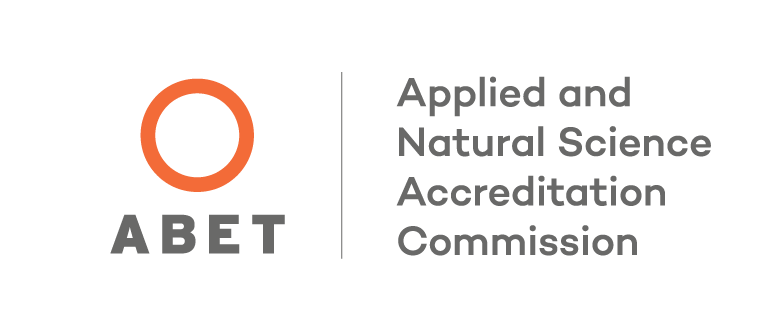
The Bachelor of Science in Aerospace and Occupational Safety is accredited by the Applied and Natural Science Accreditation Commission of ABET, under the General Criteria and the Program Criteria for Safety and Similarly Named Programs.
Program Educational Objectives
The Aerospace and Occupational Safety program exists in partial fulfillment of the University’s purpose “to provide a comprehensive education to prepare graduates for productive careers and responsible citizenship with special emphasis on the needs of workplace safety, health, environmental and related fields.”
Within a few years of graduation, Aerospace and Occupational Safety alumni are expected to be employed in a key contributor and/or supervisory/managerial role that requires the application of their AOS degree program.
In addition, graduates will be active members in a professional society, such as ASSP, AIHA, ISASI, etc.
Graduates will have achieved one or more of the following:
- Professional Certification, such as ASP/CSP
- An advanced degree to support their career growth
- Taken post-graduate courses in an allied field to support career growth
- Attended at least one professional development conference
Graduates will be viewed as a valued member of their employer’s team as evidenced by favorable performance reviews that indicate/suggest they are performing their job in a satisfactory, professional and ethical manner.
Student Outcomes
Graduates of the Aerospace and Occupational Safety program will have:
- An ability to identify, formulate and solve broadly defined technical or scientific problems by applying knowledge of mathematics and science and/or technical topics to areas relevant to the discipline.
- An ability to formulate or design a system, process, procedure or program to meet desired needs.
- An ability to develop and conduct experiments or test hypotheses, analyze and interpret data and use scientific judgment to draw conclusions.
- An ability to communicate effectively with a range of audiences.
- An ability to understand ethical and professional responsibilities and the impact of technical and/or scientific solutions in global, economic, environmental and societal contexts.
- An ability to function effectively on teams that establish goals, plan tasks, meet deadlines, and analyze risk and uncertainty.
| Year and Semester | Full- or Part-Time | Undergrad Students | Bachelor's Degrees* |
|---|---|---|---|
| Fall 2024 | FT | 66 | Not yet available |
| PT | 8 | ||
| Fall 2023 | FT | 55 | 8 |
| PT | 2 | ||
| Fall 2022 | FT | 42 | 12 |
| PT | 4 | ||
| Fall 2021 | FT | 47 | 20 |
| PT | 4 | ||
| Fall 2020 | FT | 62 | 28 |
| PT | 4 | ||
| Fall 2019 | FT | 65 | 16 |
| PT | 4 | ||
| Fall 2018 | FT | 53 | 7 |
| PT | 5 | ||
| Fall 2017 | FT | 56 | 15 |
| PT | 4 | ||
| Fall 2016 | FT | 48 | 18 |
| PT | 5 | ||
| Fall 2015 | FT | 48 | 7 |
| PT | 3 | ||
| Fall 2014 | FT | 41 | 19 |
| PT | 5 |
Contact Us
Daytona Beach, Florida 32114
